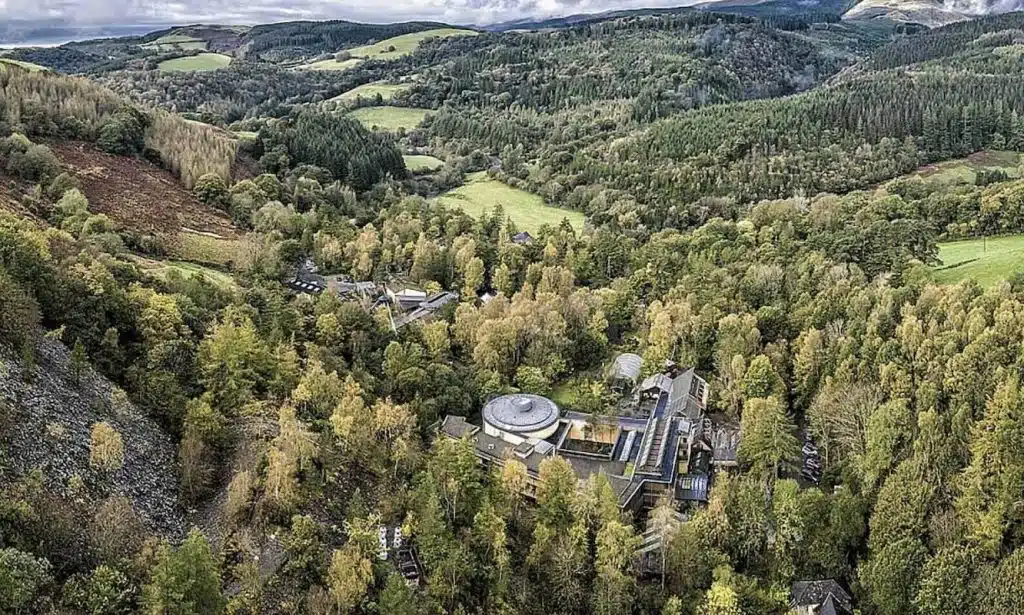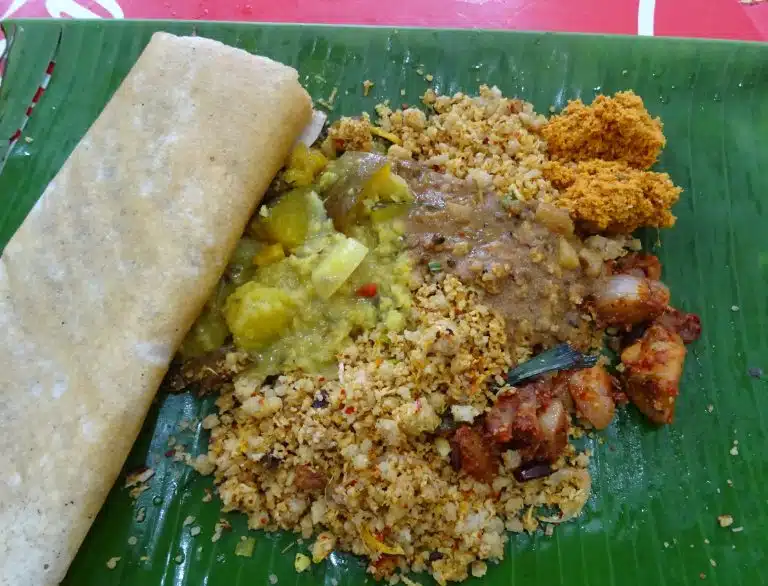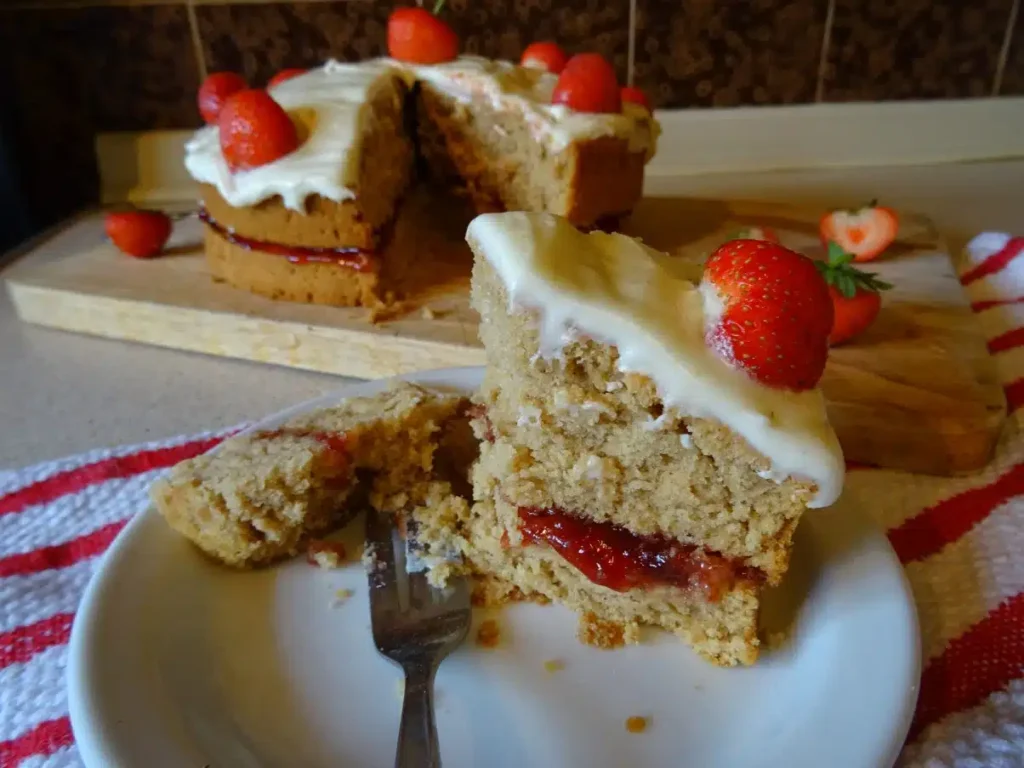Some people don’t see much of a connection between the great outdoors and veganism.
On the one hand, you’ve got rough-and-ready outdoor pursuits, hostile environments and exhilarating but challenging situations.
On the other hand, you’ve got the vegan stereotype: a nutrient-deficient individual, standing outside a butcher and screaming murder.
I know both those cliché are the extremes, but even I thought the two realms were worlds apart up until my twenties. Now things couldn’t be any different.
Two very different upbringings
To be completely transparent, our switch to veganism wasn’t out of the blue. Nor was our love for outdoor pursuits.
Sarah was brought up camping with her dad and I was brought up a vegetarian by my parents. Yes, I was ‘that kid who had never eaten meat’.
Spending time outdoors came naturally to Sarah; living off fruit, vegetables and Quorn products was just life for me.
When we met in our twenties, this is where our interests and morals blended and blossomed. Specifically, for adventuring and food.
We started experimenting with lots of vegetarian cooking, though we still had an insatiable appetite for cheese. At the same time, our relationship spilt into the hills of the Peak District, spending more and more time hiking and exploring wild places.
There was no real thought behind our actions. We hiked because we liked to hike and we cooked because we liked to eat.
Slowly, however, we started building up a real appreciation for this time outside. We’d grown up in the slow-paced and leafy Cambridge and had moved to the 4th biggest city in the UK. It was quite a jump.
In our new home of Sheffield – the Steel City – getting on the 271 bus to the heart of the Peak District National Park felt like being transported from a chaotic urban sprawl and into a green utopia.
This was the first time we truly started to understand the value of natural places.
Outdoor Pursuits are Pretty Cool!
We started hiking and cycling regularly. The physical challenge was enticing and the mental release was huge, but the most powerful aspect was finding yourself submerged in bold, natural landscapes, surrounded by geology, plants and wildlife.
We’d go back to the big grey city completely energised and inspired by the environments we’d explored, still with green tints in our eyes.
The hiking and cycling were good, but the real icing on the cake came from camping. Pushing further and further away from civilisation, camping under the stars and just losing yourself in the natural elements.
Damn, I feel like a monthly wild camp should be obligatory for everyone. It would honestly change the world.
Drifting off to the gentle sound of rain patting above, smelling the moss or oak trees around you. Feeling the gentle breeze wafting under the tent’s walls and being awoken by choirs of birds and deers rustling outside your tent.
It’s almost impossible to have experiences like these and not value them. In turn, you start to value the landscapes that make them possible.
Seeing Landscapes in a Different Light
I didn’t realise it at the time, but my Environmental Conservation uni course was massively adding to this snowballing love for the outdoors. It gave me a whole new understanding of the places we’d roam.
Admittedly, I flunked all the lecturers and coursework, but I came alive on our weekly field trips.
We’d spend the day hiking with lecturers who’d tell you every intricate detail about the world you were passing: how the land use had changed over time, the characteristics of every bird you could hear singing, what cool-looking plants were actually damaging the environment and which comparatively dull species were actually holding the whole food chain together.
After these trips, you’d see outdoor spaces in a completely different light. When we’d head into the hills hiking or explore thick woodlands I’d be unravelling the intricate ecosystems in my head, marvelling at all the symbiotic relationships that lived in harmony together.
My course also put a HUGE emphasis on how humans had changed landscapes over the years. This is what probably had the biggest impact.
Slowly I started becoming aware that the places I’d considered to be wild and natural were not as they seemed.
I learned there had been an abundance of wild animals spread across vast areas of wilderness, but much of it had been felled and uprooted, dissected by boundary walls and claimed for private landowners to use for animal grazing and hunting.
The rest had been cleared to make way for housing, motorways, service stations and the like. Quite literally, paving paradise to put up a parking lot.
Prior to the course, we’d been bumbling along in blissful naivety, embracing the never-ending pastures filled with grazing sheep or cows, and enjoying the grouse flying overhead with a gobble as we marched through moors.
With a bit more knowledge, I learned most of these landscapes weren’t really natural at all. It was just managed land, specifically designed for either hunting or animal agriculture. Those desolate green pastures were once wild woodlands; the moors had been wiped clean and constructed just for wild game birds to thrive and then be hunted, with any other interfering predators killed off.
The bleak reality is, there’s virtually no wilderness left in the UK. And as new-found adventure-lovers, wilderness was what we sought.
Wilder places, more remote, more wildlife, more thrill. But they had all been scratched off the map so gradually that our concept of ‘wild’ has morphed and our standards dropped.
Even our national parks – what should be the most protected and wildest of places – are sometimes made up of more than 80% private agricultural land or developed areas.
The more time we spent outdoors and the more learned, it really felt like the most precious gift was being taken right before our eyes.
It seemed brutally hypocritical to benefiting so much from nature and not doing our bit to protect it. So, we decided to do some research.
A Time to Learn
We wanted to learn a little bit more about it, so we did some research.
- 91% of the UK is developed with 72% being privately owned agricultural land
- Of the 72% agricultural land, only 15% creates food for direct human consumption, the rest is used to rear livestock
- Wheat vs meat water consumption
- raising animals uses half of US water
- Creates water pollution
And we were just getting angry about the land use we could obviously see right in front of us. At the same time, we knew plenty of other factors were wrecking natural areas, and climate change was pulling the rug from underneath us all.
Although the answers can seem pretty obvious now, 6 or 7 years ago it wasn’t quite so clear.
We started looking at the biggest causes of environmental damage around the world. Though you’ll get a bunch of different answers, these are the usual suspects:
- Rising global temperatures –
- sure there are natural trends to this but it’s almost universally
- Biodiversity loss
- Habitat destruction
- Pollution
- Greenhouse gases
We wanted to change our lifestyle to have less of an impact on the environment. It’s something we all need to survive so it seemed like a no-brainer.
These are the ways
You hike through roll
The Great Outdoors had made me really start to give a damn about the environment and now I was realising, shit, us humans are having a pretty awful impact. But in the UK, it can be hard to experience environmental damage that really hits home. It’s all very slow and gradual. In other parts of the world, that ain’t the case.
A Life-Changing Trip
When our studies wrapped up in Sheffield, we planned an outdoor-inspired trip around Asia. There was little direction other than to just hike, swim, climb, paddle, explore and eat.
We spent 18 months on the road exploring national parks, camping in secret coves, hiking to towering peaks, swimming with manta rays, being lulled to sleep by birds of paradise… these elements were fucking mindblowing.
But despite all the natural wonders, it was all overshadowed by the environmental carnage we witnessed.
Coral reefs that had been bleached lifeless, whole national parks uprooted for agriculture, ecosystems that had crumbled because of rising temperatures.
And it wasn’t just the natural aspect. We visited communities whose only natural water sources had dried up, families who couldn’t feed themselves because of biodiversity loss and saw air pollution that seemed like it was from a post-apocalyptic horror film.
Seeing it first hand was tough to swallow. What made it worse was knowing that a lot of the issues were not being caused by the local communities, but because of the lifestyles we lead in developed countries.
Time to Learn
We got back to the UK and knew we needed to educate ourselves a bit better on
Prior to the trip we very much believed our action were our own. That our impact of our decisions would stay within eye shot. Our time in Asia massively changed that.
We got back to the UK and new it was time to do some research and see how we could help protect the environment.
We realised that our everyday actions at home have a much bigger impact than they might seem.
And though the Peak District National Park was still nice and green, many others were in a completely different situation.
But it was on this trip where everything changed.
We’d seen the natural areas around the world destroyed, the communities suffering and the impacts that would eventually be felt all over the world. It
Spent time in natural areas and seeing change
Why vegan is good for the environment
Changing stereotypes
More vegans
Fast forward almost a decade and that couldn’t be further from the truth. It was actually our experienc
Hand in hand
But the problem in the UK is that you can feel very detached from environmental damage and global warming. There are no sudden or drastic issues taken place
Sure, we’re lacking wild spaces and rich biodiversity but that stuff is long gone. Rolling sheep pastures aren’t even that unpleasant to look at.
With my new knowledge, I’d l
There was nothing much natural about that.
But the problem in the UK is that as individuals, we feel quite removed from environmental damage and global warming. All the
Most people are aware that temperatures are rising and climate change deniers are hard to find,
But, in the UK the environmental change is so gradual it can be hard to even realise it’s even happening.
My learnings at Uni were quite a brutal realisation and I really did start looking at landscapes in a different way.
Altogether, it means it can be hard to realise there’s any problem to begin with. Sure, we know climate change is going on. But that’s going on ‘over there’. You don’t really think of the impact you are having as an individual and it’s very easy to wash your hands of any environmental responsibility.
It’s a pretty bleak realisation but it was important to have. And it was the outdoors that led to it.
Goes overseas and this isn’t the case.




